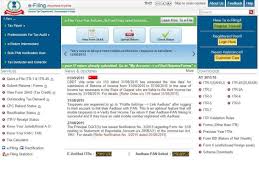
The income tax department has issued refunds to the tune of Rs 1.42 lakh crore so far this fiscal till February 10, 41.5 per cent higher than last year’s. The Centralised Processing Centre (CPC) of the tax department has already processed over 4.19 crore income tax returns (ITRs) and issued over 1.62 crore refunds during the current financial year up to February 10, 2017.
“The amount of refunds issued at Rs 1.42 lakh crore is 41.5 per cent higher than the corresponding period last year,” an official statement said. As much as 92 per cent of the refunds issued are below Rs 50,000 due to the high priority given to expeditious issue of refunds to small taxpayers.
Only 2 per cent of refunds less than Rs 50,000 remain to be issued. A majority of these cases relate to recently-filed ITRs or where the taxpayer’s response to the department is awaited.
The department also advised taxpayers to verify and update their e-mail address and mobile number on the e-filing portal to receive electronic communication.
“CBDT is committed to ensuring best possible taxpayer services through its e-governance programmes and increasing the coverage and scope of electronic filing and processing of various forms and applications,” the statement said.
As a result of emphasis on expeditious issue of refunds, 92 per cent of all I-T returns were processed within 60 days, demonstrating the Central Board of Direct Taxes’ (CBDT) commitment to faster and more efficient taxpayer service.
As many as 4.01 crore ITRs were e-filed till February 10, 2017, an increase of 20 per cent over the previous year.
Also, more than 60 lakh other online forms were filed with an increase of nearly 41 per cent compared with the previous year.
In April-January, the total direct tax collection grew 10.79 per cent to Rs 5.82 lakh crore led by robust collections in personal income tax.





